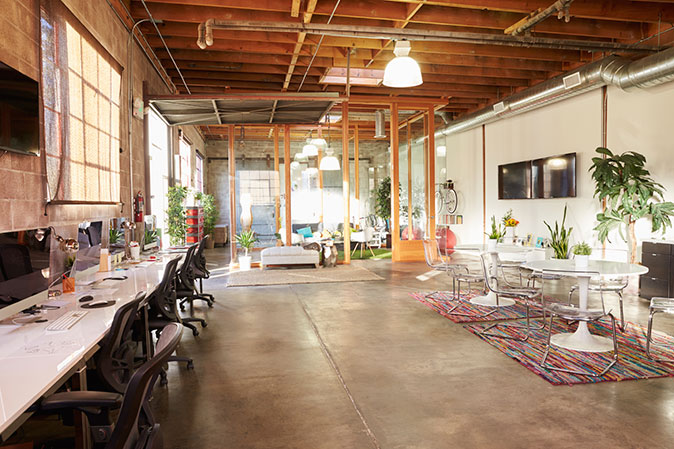
Renting property as a start-up
Not all start-ups need premises to get their business going and growing, but if you’re a retailer, for example, you probably don’t have the option of starting up in your spare room or hot-desking at a swanky West End club.
The numbers of start-up businesses in the UK have soared in recent years. According to the Centre for Entrepreneurs, start-up rates grew from 440,600 in 2011 to 581,173 in 2014 – and it’s predicted that those numbers will continue to rise.
For those that need a client-facing or formal work space to get their start-up off the blocks, renting premises is going to be a major aspect of the business plan, and it’s important to make the right decision when selecting that property.
Renting Business Premises – The Benefits
Renting premises offers a number of advantages, including:
- Reduced upfront costs – certainly much less capital required to rent than buy
- Less potential for any financial surprises – and no interest rate rises
- Less personal responsibility for maintaining the building
- Greater flexibility and less long-term commitment
Finding the Right Premises for Your Start-Up
The biggest burning question will be ‘where’? That may well be obvious. If you’re offering luxury fishing trips from Poole, there’s not much point being based in an industrial estate in Hull. Silly example, but for most it won’t be that simple.
‘Where’ is tied up in three closely related considerations:
1. How much have you budgeted for premises?
2. What do you need to be near?
3. How big does it have to be?
Each is interdependent. To satisfy 2 and 3, you need to budget correctly for 1; if there are constraints on 1 then 2 and 3 will need to be sacrificed in some way. We recommend thinking about what you need to be near first.
These are the main considerations of what you need to be near:
- Customers – do you need to be near the people you’re going to be selling to, like on a high street if you’re a retailer?
- Peers – do you need to be in the ‘hot’ place to work for your industry, like if you’re a UK tech start-up and might want to work in Silicon Roundabout?
- Suppliers – do you need to be near the people that supply you goods that are important to your business?
- Resources – do you need to be near the physical resources which help you deliver your products and services?
- Employment – do you need to be near the work force that will work in your business?
Once you’ve decided which of those are most important to you – there might be more than one – then you’ll generally be able to select the best area for you, choose a property that’s the right size, and determine what a property in that area is going to cost and budget for it.
Some areas obviously offer easier access to more than one of these. For example, we cover a number of areas in London which are historically and still currently renowned for particular industry types. These business clusters offer access to peers, suppliers and customers.
Which Legal Agreement?
When you rent a business premises, you’ll enter into one of two legal agreements – a licence or lease. Here’s a quick run-through of both:
- Licence agreements. Licences are generally more flexible, which works well for start-ups that are looking to expand in the future. You won’t be tied into a long contract, and it’s unlikely you’ll encounter many (if any) legal fees.
- Lease agreements. A lease is a more long-term commitment – generally at least 10 years, though shorter ones are available on occasion. However, leasing offers greater security – such as agreed rents and more legal rights – including the right to renew your lease at the end of the term.
Be aware, you may be required to pay rent in advance, and payment is often quarterly, not monthly, though you may be able to negotiate from time to time. You’ll also be likely to encounter service charges, which cover building maintenance, cleaning, heating etc. It’s important to find out what’s included before signing any contract.
Other Financial Considerations
You may be required to take out insurance for your start-up premises, or your landlord may arrange insurance on your behalf and add the sum to your service charges.
Additionally, if you take out a commercial lease, you’ll need to pay stamp duty plus business rates and utility bills. It’s important to factor all these costs into your financial planning to ensure you don’t go over budget.
But Remember
You’re starting your new business and it’s exciting, so consider all these things carefully but with a smile on your face because it’s all worth it to build your empire!
References:
3) https://www.gov.uk/renting-buying-business-premises



